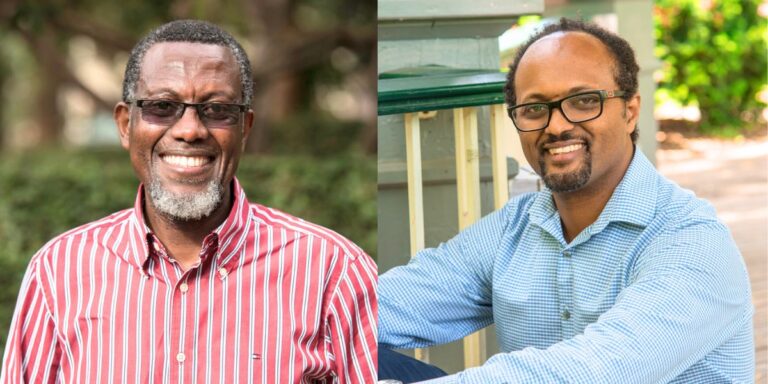Ending Burnout Culture In The Aid Sector
The work of DR. GEMMA HOULDEY is close to our heart. She’s a Wellbeing Advisor and Researcher whose new book The Vulnerable Humanitarian is about ending burnout culture in the aid sector. Recently she gave a talk about her book to some of us at Thrive and colleagues from other agencies. We want to share with you some of what she told us.
About Gemma & Her Book
She spent six years researching this book, with both national and international staff from NGOs and aid agencies in Kenya. Prior to that she worked in the aid sector for over fifteen years.
Her book is about the “unrealistic expectations” that are placed on aid workers. In it she considers “why burnout is so endemic, yet so rarely acknowledged, within aid organisations”. It has a practical aim too, as “a means through which staff and managers can reflect upon and discuss damaging organisational cultures and behaviours, and develop a more inclusive and caring work environment.”
‘The Perfect Humanitarian’
She believes that the working culture in the aid sector is often based on an unhealthy idea of a “perfect humanitarian”. This is typically someone who: has had a postgraduate education from an elite European university; has an ability to cross borders with ease; is available 24/7; embodies a “macho culture” in which they are expected to be unflappable, and never pause to recover from their experiences.
These abilities are more available to some than others. Specifically, to men more than women, and to Europeans more than Africans. The pressure to live up to this can be hard on everyone, but she said it can be especially hard for women, citing the challenge of talking about and dealing with menstruation when “in the field”.
Rethinking Burnout
Just as one kind of person dominates this idea of a ‘perfect humanitarian’, so too one group of people have dominated the language we use to talk about mental health and wellbeing. She pointed out that terms like stress, resilience and burnout originate from white, European and American aid workers. This group, she says, have too often seen burnout and trauma as an individual problem, which is therefore treated at an individual level. However, for some national staff, terms like ‘burnout’ are not even understood, and in terms of recovery, they would be more likely to resonate with what she calls “collective care”. She thinks this shows a way forwards, and would like to see a focus in the sector on “looking after each other rather than looking after ourselves”.
An Alternative Future
She highlighted several ways we could all approach wellbeing in the aid sector differently.
Firstly, NGOs need to listen better to their national staff. She explained how 90% of the aid sector is not made up of “international staff from the global north” but rather “national staff from the global south”. She said “What we forget often is that aid workers from the global south are suffering from the very issues that the NGOs are fighting against”.
She highlighted the instance of one Rwandan aid worker in a refugee camp who said he felt lonely amongst his colleagues, and that the people he felt most belonging with were the people he was supporting. Even though they are socially and physically closer to the difficulties they seek to address, she finds it “surprising how little this is acknowledged by employers”. Aid workers are “cut off in their compound” and so an “us and them” divide persists.
“We need to see a focus in the sector on looking after each other rather than looking after ourselves.”
Secondly, we need to move from just individual forms of recovery to collective ones. She argued that while the individual approach (e.g. counselling) is important, on its own it “lets employers and colleagues off the hook” in terms of their responsibility for staff wellbeing. We need to recognise that everyone has a responsibility for each other, which she likened to the African tradition of “ubuntu” which is often translated into English as “I am because we are”.
Thirdly, we should recognise the role that religion and spirituality can play in resilience and recovery. Many people in the sector have a religious faith. It gives them purpose, meaning and support. She acknowledged that it can be hard, however, to make this point in a sector dominated by secular NGOs. But it is nevertheless important to do so.
Creating ‘Vulnerable Humanitarians’
In Gemma’s book she proposes a four-step process for better self-care in the aid sector. Here’s a very brief summary:
- Generate Compassion. She distinguishes two different kinds of compassion: one that comes “through the body” in the form of stillness, breathing and dance and also “through contemplation” in terms of remembering what motivates you and celebrating who you are.
- Befriend Our Shadow. She believes it’s important for people in the sector to explore “where our actions are harmful to ourselves and others”.
- Lead With Values. Her book talks about staff “committing to values collectively”. She wants to see more conversations take place around values e.g. how much you live by them, and how much they are being represented in your organisation.
- Cultivate Brave Spaces. She argues for more collective practises for connection in the sector, in which people can express clearly and cleanly their emotions and perspectives.
A Response From The Aid Sector
At the end of the talk she was asked what kind of reaction her book has had among the big aid agencies. She said that some organisations have asked for her input, but ultimately, most organisations don’t want to put money into this kind of work. She also said she’s found it hard to build good relationships in many of these organisations, because of high staff turnover: it’s often the case that “the manager I’ve been talking to leaves the organisation” and so the rapport that she had is gone. But resilience, she said, is not about spending big money. Rather, it’s about setting aside time and space for sharing and being vulnerable with each other.
We can work with you to improve the wellbeing of you and your team. Click here to set up a friendly, no-obligation chat with one of our team. Let’s end burnout culture in the aid sector!










